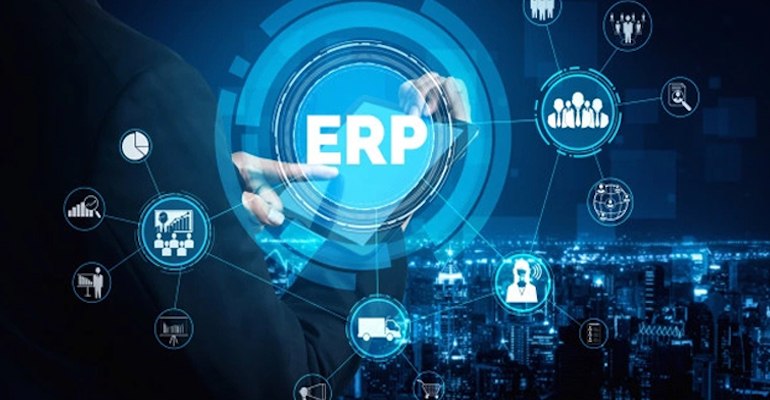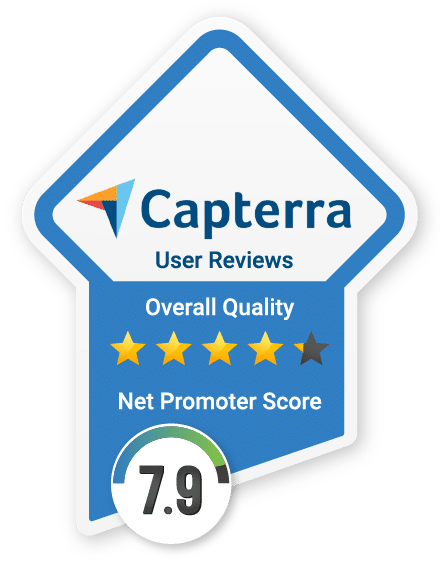How SaaS ERP platform can be the Game-changer for Freight Forwarding Companies
March 22, 2021 Software
The Need for Digital Transformation in Freight Forwarding The logistics and transportation industry is more competitive than ever. Freight forwarders face several challenges, including supply chain disruptions, regulatory changes, and increasing customer demands. To stay ahead, companies must adopt digital solutions to streamline their operations. This is where freight forwarding software powered by SaaS ERP (Software as a Service Enterprise Resource Planning) comes into play. By leveraging cloud technology, businesses can automate workflows, improve efficiency, and respond quickly to market changes. According to industry experts, the global cloud ERP market is expected to reach USD 101.1 billion by 2025, highlighting its growing importance in logistics and supply chain management. What is SaaS ERP? SaaS ERP is a cloud-based solution that allows freight forwarders to manage their entire business through a single platform. Unlike traditional on-premise systems, SaaS-based freight forwarding software is hosted on secure servers managed by the service provider. This eliminates the need for expensive infrastructure, maintenance, and IT support. Some key benefits of SaaS ERP include: How SaaS ERP Transforms Freight Forwarding Freight forwarding software powered by SaaS ERP is revolutionizing the logistics industry. Let’s explore how it benefits freight forwarders. Legacy freight management systems come with high upfront costs, complex maintenance, and limited accessibility. Cloud-based freight forwarding software solves these issues by offering: With SaaS ERP, freight forwarders can ensure that all stakeholders—whether in offices, warehouses, or on the move—have instant access to critical data. Effective communication is key to smooth freight operations. SaaS-based freight forwarding software enables real-time collaboration, ensuring that teams can: Since freight forwarding software allows controlled access based on user roles, sensitive data remains secure while teams work more efficiently. Customers expect faster deliveries, and delays can lead to dissatisfied clients. Freight forwarding software streamlines logistics processes by: With improved workflows, freight forwarders can reduce delays and enhance customer satisfaction. On-premise systems require significant IT support and maintenance. With SaaS ERP, the software provider handles all updates, security, and system enhancements. This helps freight forwarders: Instead of worrying about technical issues, logistics companies can focus on growing their business. A major advantage of cloud-based freight forwarding software is its ability to track performance and identify areas for improvement. Freight forwarders can: By continuously refining their processes, freight forwarders can stay competitive and increase profitability. Why Freight Forwarders Should Invest in SaaS ERP The logistics industry has traditionally been slow to adopt digital solutions. However, with growing challenges, freight forwarding companies must embrace advanced technology to remain competitive. By implementing freight forwarding software with SaaS ERP, businesses can: Conclusion The adoption of SaaS ERP in freight forwarding software marks a new era for the logistics industry. Companies that invest in cloud-based solutions can significantly improve their operations, reduce costs, and gain a competitive edge. With features like automated workflows, real-time tracking, and secure cloud access, freight forwarders can enhance productivity and provide better service to customers. The future of freight forwarding lies in digital transformation, and SaaS ERP is the key to achieving success. Are you ready to upgrade your freight forwarding operations? Invest in the right freight forwarding software today and take your business to the next level!
FAQ: SaaS ERP for Freight Forwarding
SaaS ERP (Software as a Service Enterprise Resource Planning) is a cloud-based solution that helps businesses manage their entire operations, such as inventory, accounting, shipping, and customer relations, through a single platform. It eliminates the need for traditional on-premise systems, offering flexibility, cost savings, and scalability.
SaaS ERP benefits freight forwarding companies by automating workflows, reducing manual errors, improving data accessibility, and offering scalability to accommodate business growth. It helps improve efficiency, lower IT maintenance costs, and enable better decision-making through real-time data.
Key advantages include lower upfront costs, easier access from any location with internet connectivity, automatic updates, and secure data integration across devices. SaaS ERP eliminates the need for expensive hardware and IT infrastructure while offering enhanced collaboration and accessibility.
SaaS ERP enables real-time communication and collaboration between teams, allowing stakeholders across different locations (offices, warehouses, or on the move) to share updates, track shipments, and communicate with customers efficiently. Controlled user access ensures data security while improving team productivity.
Yes, SaaS ERP optimizes route planning, automates order processing, and streamlines workflows, helping reduce transit times, bottlenecks in warehouses, and customs clearance delays. These improvements lead to faster deliveries and enhanced customer satisfaction.
SaaS ERP helps freight forwarders save on IT and infrastructure costs, as the software is hosted and maintained by the provider. Companies can avoid expensive hardware investments, eliminate in-house IT support teams, and benefit from built-in cybersecurity and system updates without additional costs.
SaaS ERP providers typically include robust security features, such as data encryption and secure cloud hosting. Regular software updates ensure the system stays protected against cyber threats, allowing freight forwarders to focus on their core business rather than worry about security breaches.
Yes, SaaS ERP is designed to scale easily with a business. As the company grows, the software can be adjusted to meet increasing demands, whether in terms of data volume, users, or new features. This scalability ensures that businesses can continue using the same system as they expand.
SaaS ERP allows freight forwarders to monitor key performance indicators (KPIs), analyze shipment data, and test new strategies for process improvement. This data-driven approach helps identify inefficiencies and implement solutions to stay competitive in the industry.
Freight forwarding companies should invest in SaaS ERP to reduce costs, improve efficiency, enhance collaboration, and scale operations as needed. SaaS ERP enables businesses to embrace digital transformation, stay ahead of industry trends, and offer better service to customers.


